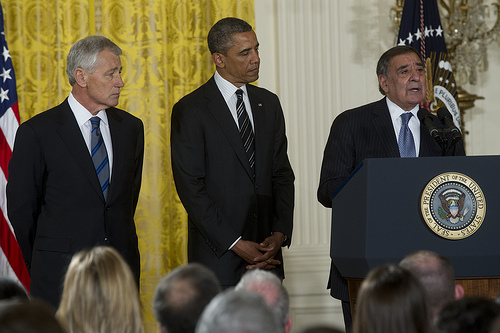Last week, Charles “Chuck” Hagel became the first Secretary of Defense nominee to face a filibuster. Congressional Republicans say they need more time to research Senator Hagel’s background, which has given supporters and detractors plenty of time to do their own due diligence.
Before he had to face a Senate confirmation hearing, Senator Hagel, a former Georgetown professor, sat down one-on-one with GPPReview interview staffer, Heather Vaughan. The 2011 interview provides an overview of Hagel’s views on foreign policy and the military. Professor Hagel speaks earnestly and without the caution or timidity of nominee Hagel on subjects that are just as relevant today as they were two years ago.
“In foreign policy, there is rarely a situation where you have good options. You’re normally faced with bad options. But we have to make a decision—we’re the most sophisticated, powerful nation in the world,” the former Senator told GPPReview. The interview also provides insight into his current persona non grata status on the Hill: “I don’t think Congress did their job of asking the tough questions on how we got into these wars [Iraq and Afghanistan] and why and how long we were going to be there.”
Chuck Hagel is all but guaranteed the top spot at the Pentagon, which makes the unprecedented “research time” filibuster seem more like a footnote to Obama’s second term than a substantial part of the story. The interview presents Hagel as an opinionated realist—someone who recognizes the influence of American power and how that power needs to adapt in the coming years. The theme of the 2011 interview was security, but Hagel brings the issue around to the economy, demographics in India, and the fact that effective policy does not always fit into the 30-second rubric of talk-show politics.
You can read the entire interview here or check out the full 2011 edition of the The Georgetown Public Policy Review here.
Jacob Patterson-Stein is a second year Master of International Development Policy student. Prior to attending McCourt, Jacob worked for Thomson Reuters in Washington D.C., the More than Me Foundation in Liberia, and in a rural public school in South Korea. He spent summer 2013 working for the Support for Economic Analysis Development in Indonesia (SEADI) project in Jakarta.
